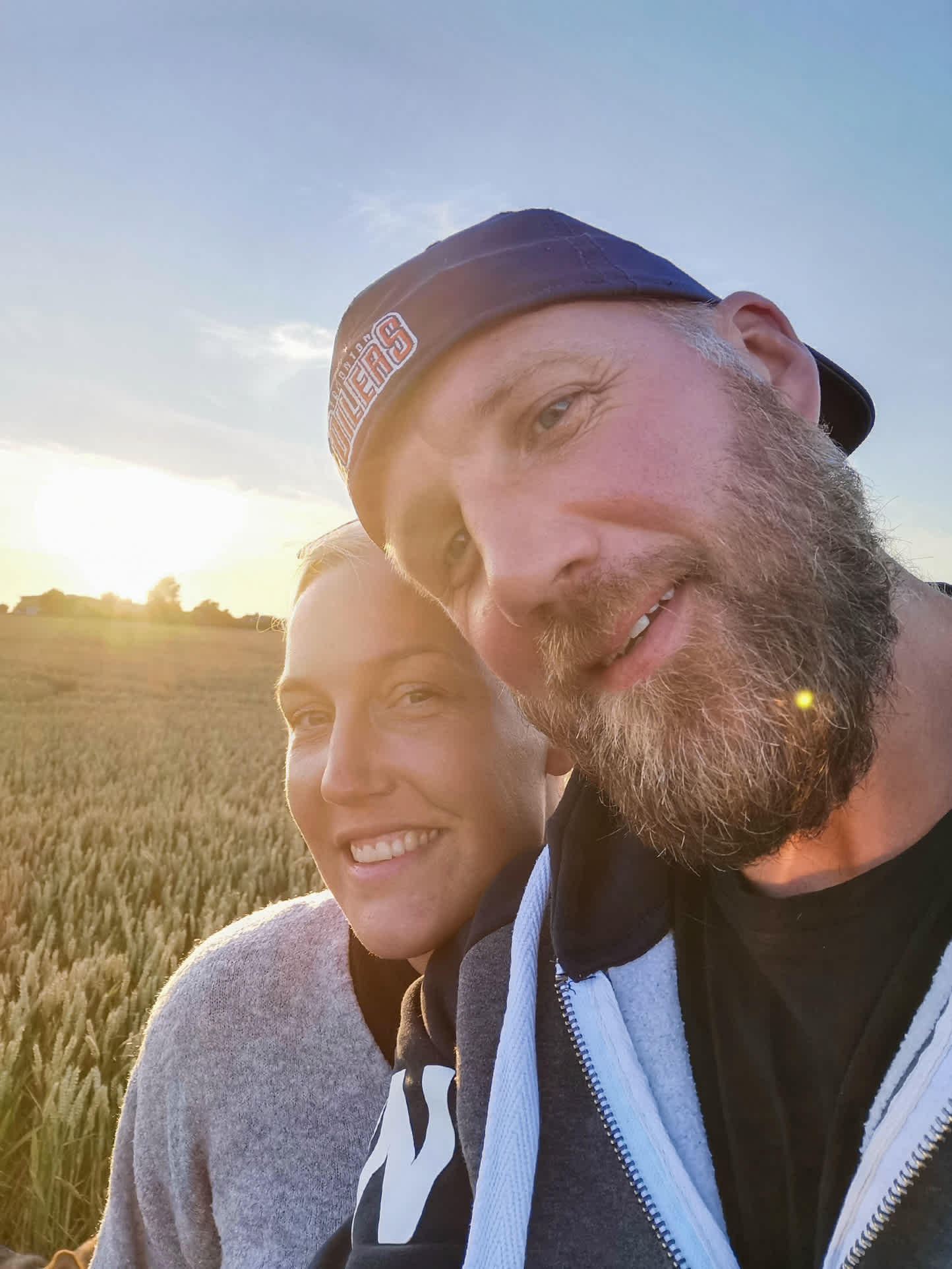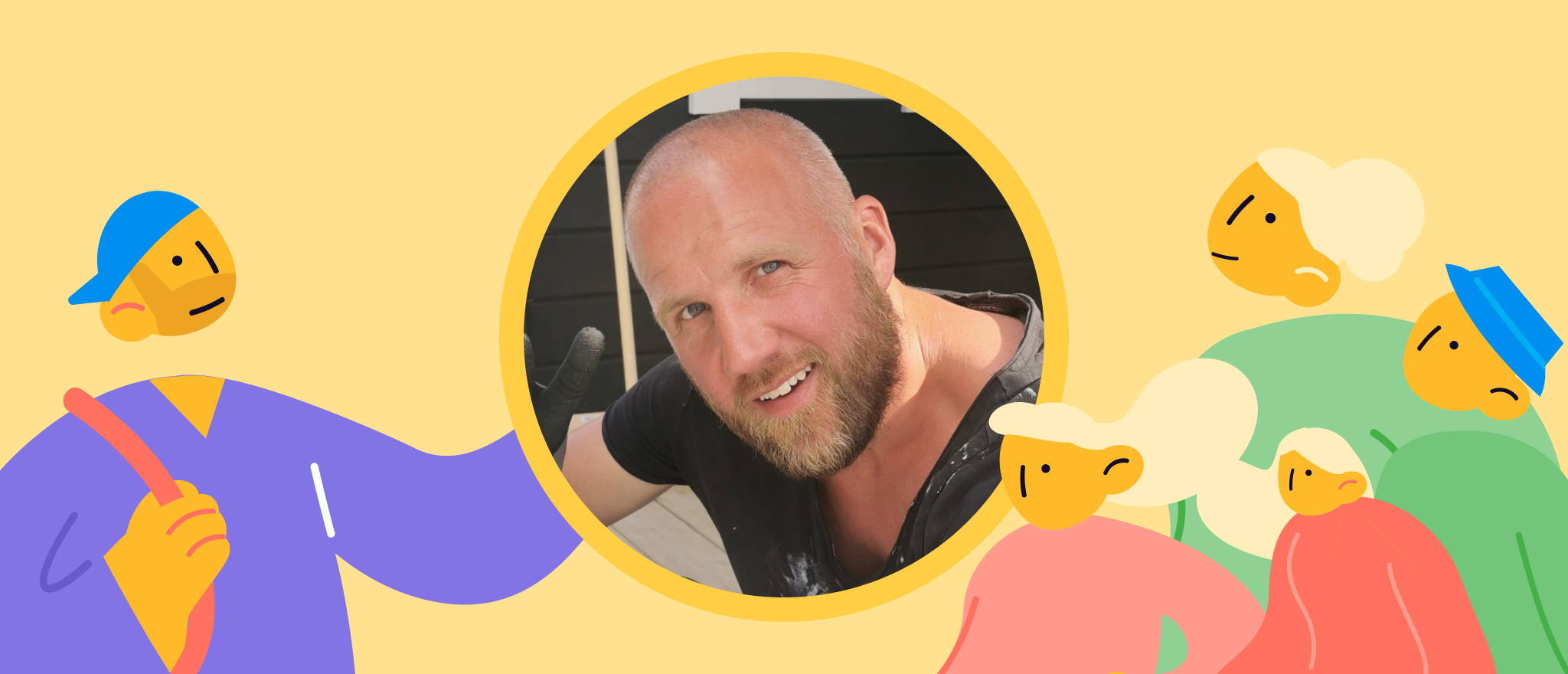"You can live a normal life"
Mattias Lundgren was diagnosed with ankylosing spondylitis (AS) at the age of 25, but had already had symptoms as a teenager. Finding the right medication, being open to his surroundings and listening to his body have been Mattias Lundgren's path to living a completely normal life.
Who are you?
My name is Mattias Lundgren I am 39 years old and I live with my wife and three children. I work shifts at a pharmaceutical company as a mechanical engineer. As life looks right now, it’s completely normal and busy with pick-up, drop-off and leisure activities. In all seriousness, I do not have much time for my own activities right now, and I have to find the time to exercise and to keep a strong and healthy body.
How was it when you got your diagnosis?
I was diagnosed with ankylosing spondylitis (AS) when I was 25, but it was a long journey there. I was 16-17 years old when I had my first symptoms: I was hospitalized with severe inflammation in the shoulders, knees, hips, ankles and fingers. It was a long process and I missed a lot of school in that period. The doctors thought it had to do with salmonella bacteria so I was discharged when I started to feel better, and life got tougher.
I played a lot of sports at that time: football, hockey and ice hockey. I had a lot of injury problems but I did not think about it and just drove on. After a couple of years, the severe inflammations started again. I had major hip problems, sought a lot of care, took lots of anti-inflammatories and continued to play sports as usual. To cut a long story short I ended up with a doctor who referred me to a private rheumatologist, but in the end I became so ill I could not walk and was admitted to hospital as an emergency again.. I was finally referred to the rheumatology clinic in Huddinge where I received the help I needed. It is a really good department that I can always contact even with the smallest possible problems. It's a team I'm proud to know.
How was it after you got the diagnosis?
When I was diagnosed, the journey began to find a drug that would work for me. It took a while. I was just in the process of having to replace my hip joint when I finally had the chance to find a drug that suited me, and which caused the operation to be paused. For the past six years, I have felt very well and have not had so many severe relapses. The disease is more in balance. I have had back surgery and received a good exercise program after that, which has also had an effect. My AS only really shows itself as morning stiffness and in other situations where I need to sit still for a long time.
Is there anything that has been difficult?
I grew up doing a lot of sport as I said, and after the diagnosis I discovered I could not do what I wanted to in the same way. I have had to adapt because of my body and it feels boring sometimes. I want to, but my body cannot and then I need to respect it and find things that work.
Professionally, I have had to opt out of training as an excavator operator, which was something I had thought about. But it is not recommended if you have a rheumatic disease due to being sedentary and the work environment. Then I had to change jobs because it was too physically demanding and the work became too much for hands and fingers. It is also tough not to have had symptoms for a long time and then they suddenly appear. It has been a mental challenge, but thanks to very understanding managers, it has been solved by relocating my work when the symptoms have been at their worst.

How have you and your loved ones talked about your illness?
I feel I am received with open arms when I talk about my illness and how it was before. Now I've gotten better, hardly anyone believes how bad I felt. My family and my childhood friends have been a great support in both the good and bad times.
My mother also has the same diagnosis as me, so of course I suspected before I got my diagnosis that maybe that was what I had. Actually, it was just nice to get a confirmed diagnosis, but I remember it felt hard to tell my mother. But Mom and I have really benefited from supporting each other and sharing both good and bad experiences. It feels great that we have each other. In recent years I have been able to support her in getting the care she needs and finding new ways to feel better.

What are your golden tips in everyday life as a person with a rheumatic condition?
Share. For me, it has been important to talk and share about how things are. I try to tell someone if I need to take a break because I'm in pain. We have bought a house where we need to build a terrace, and I know I have to take the work a little at a time. I get reminded pretty quickly of my disease if I start carrying too much or working too hard.
A drug which works is vital. It was so obvious once I found a drug that suited me. Now I don’t really think about having a chronic disease often, but I do know that if I delay the medicine I take every other week by two days, I will feel my symptoms coming back. So a good drug really is critical.
Live your life, but listen to your body. I always try to see things positively: you can have a really good time. I always tell myself that it's possible to live a normal life, family life and everything, even though you have a chronic illness. But you need to listen to the disease as well. Sometimes it can feel tough, especially in the beginning. But it works out, I promise.
